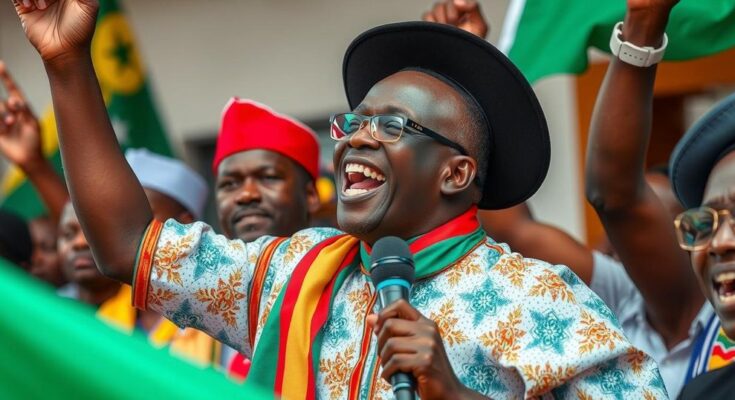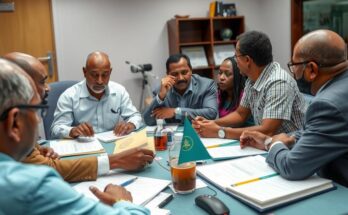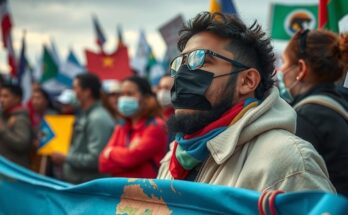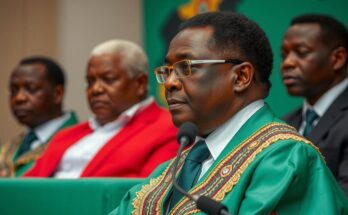Ghana’s opposition claims that provisional election results show John Mahama leading the presidential race. The electoral commission is still compiling official results. Economic issues overshadowed the election, reflecting deep public frustration with current governance. Mahama aims for a comeback following two failed attempts since his presidency ended in 2017.
On Sunday, the opposition party in Ghana announced that provisional results indicated their candidate, John Mahama, is leading in the presidential election held over the weekend. Despite this proclamation, the electoral authorities clarified that they are still in the process of compiling official results. The election was predominantly a face-off between Mahama from the National Democratic Congress (NDC) and Vice President Mahamudu Bawumia of the ruling New Patriotic Party (NPP), who faced challenges related to public discontent over governmental policies and soaring living costs.
The economic climate of Ghana heavily influenced the election, marked by high inflation, a significant debt default, and a consequential $3 billion bailout from the International Monetary Fund (IMF). Voters were determining a successor for President Nana Akufo-Addo, who is exiting after fulfilling his constitutional limit of two four-year terms, alongside selecting representatives for a new parliament.
NDC representative Sammy Gyamfi revealed to media outlets that party analyses showed Mahama capturing 56.3 percent of the vote compared to Bawumia’s 41.3 percent. He remarked, “It is very clear the people of this country have voted for change.” Local media reports corroborated that early vote counting identified Mahama leading in the polls with 42 out of 276 constituencies reporting.
Despite a largely peaceful voting day, incidents of violence were reported, resulting in two fatalities. Historically, Ghana has shown a commitment to democratic stability, with the NPP and NDC alternating leadership since the re-introduction of multi-party politics in 1992. Bawumia sought to maintain the NPP’s hold on power with the mantra “Break the 8,” denoting the quest for a third consecutive term, yet encountered challenges related to his predecessor’s economic performance. While inflation had decreased considerably from over 50 percent to approximately 23 percent, economic difficulties remained a pivotal electoral issue, enabling Mahama’s potential resurgence after unsuccessful presidential bids in previous elections.
Ghana, a West African nation known for its gold and cocoa production, has maintained a reputation for democratic governance since adopting a multi-party political system in 1992. The political landscape is primarily characterized by the competition between two significant parties, the National Democratic Congress (NDC) and the New Patriotic Party (NPP), which have alternated power. The recent elections were greatly influenced by Ghana’s economic turmoil, which has seen the country struggle with high inflation, currency devaluation, and public dissatisfaction stemming from government policies. The impending results of the presidential election reflect the citizens’ response to these pressing economic conditions, highlighting the significance of effective governance and accountability.
In summary, the recent presidential election in Ghana presents a critical moment for the country’s political trajectory, with the opposition party claiming a lead for John Mahama amidst ongoing official tallies by the electoral commission. As Mahama’s potential victory addresses public desire for change in leadership, the implications of economic recovery and governance are both paramount. The forthcoming official results, projected by Tuesday, will provide clarity on the electorate’s stance in the face of economic challenges.
Original Source: www.barrons.com




